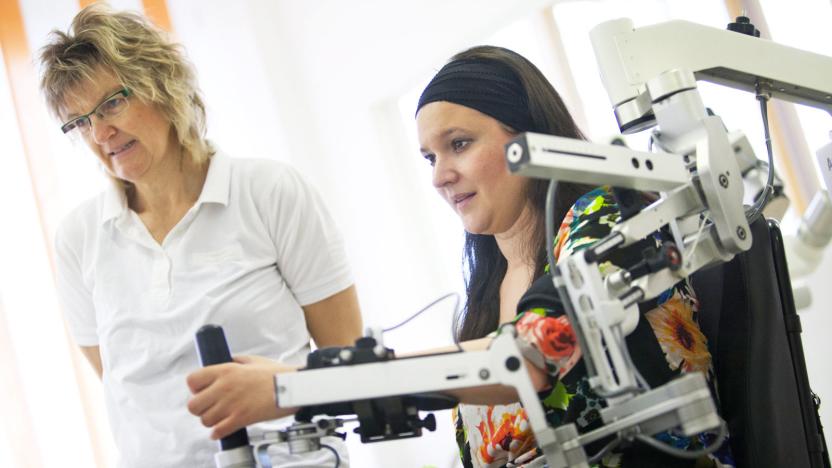syntheticbiology
Latest

Scientists take a big step toward creating custom organisms
Scientists dream of using custom organisms to fight illnesses or even build computers, but there's a problem: it's difficult to make the sweeping genetic changes that would give you exactly the lifeform you need. To that end, researchers have found a way to rewrite "large stretches" of genomes with synthetic DNA. The team modified salmonella bacteria by using step-by-step recombineering (that is, exchanging sequences between similar pieces of DNA) to patch in yeast-grown genes that were "amplified" to boost their quality. The result was salmonella with 1,557 replacements spread across 176 genes -- a huge change for a relatively simple organism.

Free online courses will teach anyone DNA sequencing
It's never been easier to learn how to code using online resources, and that's not limited to computer programming. You know what else is code? DNA, which scientists have been modifying in bacteria and embryos with increasing success over the years. Researchers from the Centre Recherches Interdisciplinaires in Paris, France have launched Synthetic Biology One, a website offering free courses to teach anyone how to change genetic code.

MIT: More collaboration is needed to fight disease
As anyone who follows science knows, a lot of the fields have blended together. Medical research is dependent on robotics and other technology, while computer engineers are building neural networks that mimic our brains. To get everyone working together, leading MIT scientists, including President Emerita Susan Hockfield and Nobel Prize winning geneticist Philip Sharphave, have drafted a paper called "Convergence: The Future of Health." They believe the federal government, academia and industry must grasp the importance of overlapping research and fund it appropriately.


